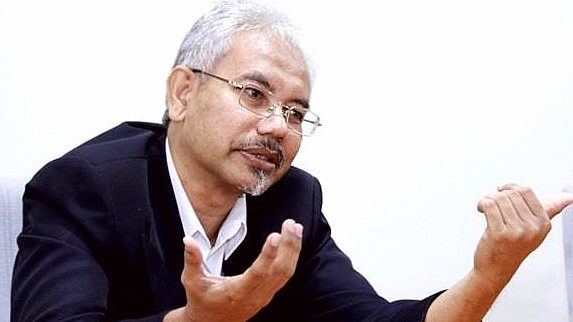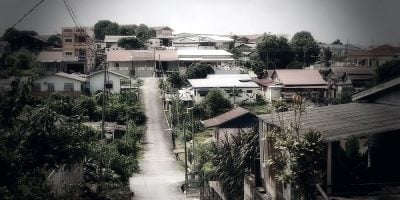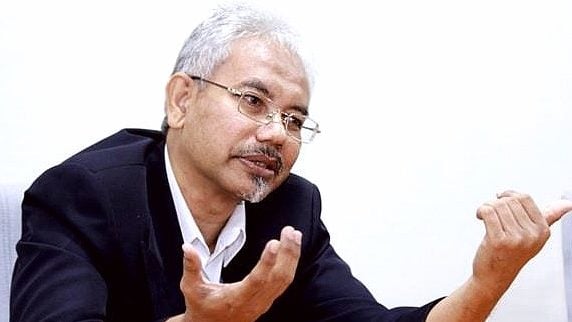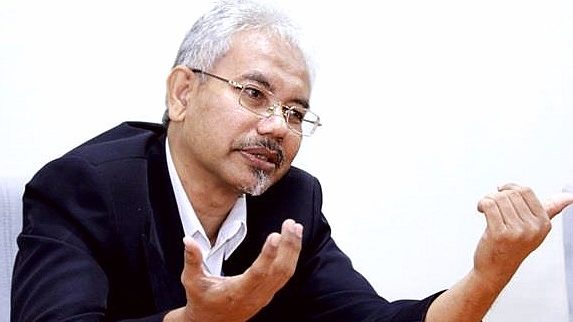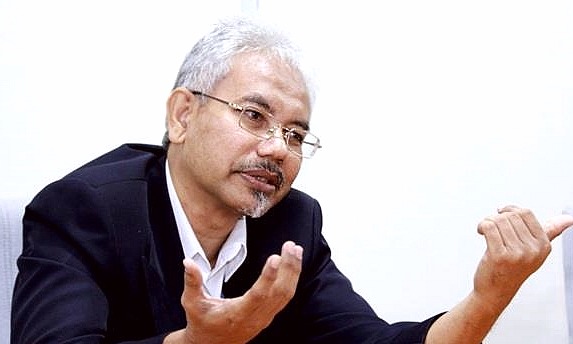
In a recent forum on corruption in the Malay-Muslim culture, I made an unpopular remark that corruption is not the problem but is merely a symptom.
The main problem that had led to the culture of accepting corruption among the Muslim religious narrative is that Muslims do not know or appreciate the concept of nation-building.
To the majority of Malay-Muslims, their identity is tied directly to being a Malay-Bumiputera and a Malay-Muslim.
One will make the race prosper in this world while the other in the afterlife.
There is no room, it seems in the Malay-Muslim narrative for nation-building.
What is nation-building? Nation-building is simply the concept of sharing with others of different races and faiths the wealth and presence of this land and water that we live in and a country that we together as a single people swear to defend and perhaps die for.
Malay-Muslims are being taught the narrow concept of Muslim unity or ummah as politicians using Islam as a weapon of winning elections are fond of saying.
To them, Muslim unity comes first, second and last. Malaysian unity must only come under the subservience of the strength and total dominance of the Muslim ummah.
This narrative of not sharing equally the wealth of this nation may have been a result of a narrow teaching of the Rukun Islam by clerics who are schooled in madrasa or religious school that had no curriculum on the understanding, importance and appreciation of art, culture, heritage, democracy and economic sustainability.
The modern religious schools still use the ancient and archaic division of knowledge of Hadith, Tafsir, Seerah, Fiqah or jurisprudence, Tauhid and Islamic History. The result is an isolationist attitude of Muslim in a ‘war narrative’ of ‘us against them.’
In this article I wish to propose a fresher insight of the Rukun Islam in terms of nation-building.
There are five Rukun Islam, the first being the testimony and profession of There is One God and Muhammad is His Messenger, known as the Kalimah Syahadah.
The second is the acceptance and performance of the five obligatory prayers or salat every day.
The third is the fasting during Ramadhan.
The fourth is the performance of hajj, if possible and able, at least once in a lifetime.
The fifth is the obligatory payment of zakat or religious tax to be distributed to the needy.
I will start with the zakat. In Islam, there is two kinds of religious charity; zakat and sadaqah.
In the Qur’an, sadaqah is almost always mentioned alongside salat or prayers while zakat is instructed in a few Verses.
The religious difference between the two is that the zakat collection must almost always be given to Muslims only but sadaqah is free to be given to all men even if they are non-Muslims.
However, many scholars say that zakat can be given to non-Muslims under a life-or-death situation like a famine or war-torn poverty.
It can be seen that if Muslims were to understand that charity is only meant for Muslims from Muslims, thus Islam seems to be an isolated and selfish religion.
But if Muslims were taught that other non-Muslims must also be helped as a religious duty, therefore the idea of sharing this nation becomes a reality.
We have seen how the Buddhist Society, the Sikh Society and the Christian people of Malaysia prepared food and gave the much-needed help to all who suffered the flood recently.
Muslims should reflect that if other faiths have shared their charity in a nation-building construct, Islam should do the same.
In the Qur’an, Allah mentions that charity is to be given to the orphans, travelers and the poor regardless of race or religious faith.
The Qur’an already has a nation-building construct, if only Muslims would read it and understand the larger message and not stay within their own cocoon.
Next is the performance of pilgrimage. Muslims always feel a sense of the power of the ummah when millions gather in a single robe and perform the hajj.
The sense of fraternity and unity among the Muslims is extremely high during the hajj. This causes the Muslims to feel further away from any nation-building construct and only refer to their own Muslim Brotherhood construct.
Muslims, for me, should reflect what is the history of the hajj and what could be its wider message.
Firstly, the hajj is the pilgrimage to the temple built by Abraham thousands of years ago.
Abraham was the father of all Jewish people from his son, Ishak or Isiah, as well as the Arab people through his son, Ismail or Ishmael.
Ishak’s line produced all the great Rasul or Messengers of God like Joseph, Moses, John and many more, while the only prophet that came from Ismail was Muhammad.
The Arabs before the birth of Muhammad had performed some kind of pilgrimage ritual to the Ka’abah, the temple of Abraham.
Thus, for me, the Muslims must reflect that they are of one people with the People of the Book or Ahlil Kitab.
Unity with the wider fraternity of humanity can serve as a lesson in nation-building.
Third is fasting during Ramadhan.
Fasting is supposed to be the act of voluntarily feeling hunger and thirst. Why? One reason or argument is to feel the same hunger that the poor feels.
Now who are the poor? Are they just Muslims only? Of course not, poverty and hunger are race-less and faith-less.
Thus, during Ramadhan, the Prophet Muhammad performed charity and was generous ‘like the wind.’
So, if Muslims transfer this feeling of compassion to all, it would serve an important nation-building construct.
Fourth is the performance of prayers. An excellent requirement in Islam, as testified by many other faiths, is the call to perform the community prayers or congregational prayers daily and weekly as in the Friday Prayers.
How does this help nation-building? Muslims have many social obligations like educating the community, charity and political responsibilities. Muslims are a self-motivated society as they follow the actions and behavior of the Prophet Muhammad and his community during his lifetime.
When I was in Edinburgh, the Mosque of Edinburgh became a collection point for clothes, food and medical supplies to be sent to war-torn Bosnia.
There was no talk about which charity was for Muslims and which was not for Muslims. We simply loaded them all in a truck and prayed that the goods were delivered safely.
During the pandemic, a few mosques in Malaysia were used as vaccination centers.
During a flood in Penang, a mosque was used as a relief center and this to me shows the humanitarian aspect of Islam and mosque architecture.
The fifth pillar of Islam, which is actually the first Rukun Islam, is the testimony that there is only One God and Muhammad was His Messenger.
Many Muslims feel that Allah is their own sole God and no other. But the history of the language does not support that conclusion.
The word Allah, which literally means The God, was used by Arabs who were Christians, Jews and other non-monotheistic faiths.
The fraternity of religions believing in a living and a single God should be closer together and not live in mistrust and animosity.
If this were the case, then this is an excellent nation-building element.
Similarly, if Muslims were to view that Muhammad came from Abraham as other faiths too, then Islam is wider than just a community of an isolated world view.
Muslims should also consider the characteristics of the Prophet who was soft spoken, compassionate and easy to talk to instead of the loud and rude declaration of faiths by Muslims presently who would cause physical injuries on those who were said to have insulted the religion or Muhammad.
Once, Muhammad was pelted with stones by the young people of Ta’if till his body bled, but he harbored no vengeance in his heart when he entered Mecca at the head of 10,000 army of Muslims.
The Prophet also showed exceptional compassion and political savvy in forgiving Abu Sufyan and Hindun who hounded him and ate the beating heart of his favored uncle Hamzah.
Although Muhammad never showed his forgiveness to the assassin Wahsyi who murdered his uncle Hamzah, he did not kill him in return but set him free with the condition that he, Muhammad, shall not set his eyes on Wahsyi ever again.
The behavior and compassion of Muhammad should be an example par excellence to Muslims, but somehow this message of compassion and forgiveness was never taught as a nation-building construct.
In conclusion, the Rukun Islam has all the elements of building a nation of diverse cultures, faiths and communities.
The five pillars of Islam must go through a nation-building metamorphosis in order to become the glue of this country and not as a weapon to those who would misuse them for selfish ends.
(Prof Dr. Mohd Tajuddin Mohd Rasdi is Professor of Architecture at a local university and his writing reflects his own personal opinion entirely.)
ADVERTISEMENT
ADVERTISEMENT







